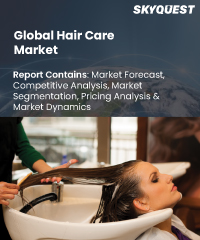
Product ID: SQMIG30L2094

Report ID:
SQMIG30L2094 |
Region:
Global |
Published Date: April, 2024
Pages:
198
|
Tables:
66 |
Figures:
78
Asia Pacific held a large share of more than 35% of the global market in 2020. The popularity of hair and scalp care products is expected to drive the regional hair care market. This is due to the increasing inclination of consumers towards these products, as well as new brands entering the market. For example, in July 2021, Adon Hair Care Clinic, an India-based hair transplant brand, launched Growdense Hair Serum, which is accepted by the FDA designed for hair and scalp care.
Europe is projected to experience a very high growth rate over the next few years. The increasing demand for different products and online beauty spending is one of the key factors fueling the growth of product demand within the region. The growth of direct-to-consumer channels and the use of social media has caused significant disruption in the European market. Since mainstream brands such as Head & Shoulders face intense competition from "masstige" (prestige for the masses) brands such as Aveda, Palmer's, and Kérastase, their marketing strategies must be carefully planned in order to stay ahead of the competition.
Our industry expert will work with you to provide you with customized data in a short amount of time.
REQUEST FREE CUSTOMIZATIONWant to customize this report? This report can be personalized according to your needs. Our analysts and industry experts will work directly with you to understand your requirements and provide you with customized data in a short amount of time. We offer $1000 worth of FREE customization at the time of purchase.

Product ID: SQMIG30L2094